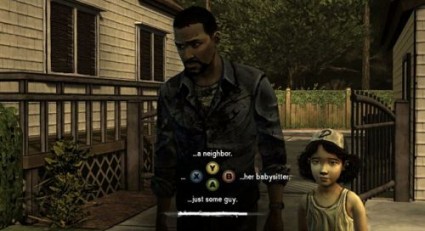Editorials
Digital Distribution gathers pace: Is it Game-Over on the High Street?
December 22, 2012, Author: Neil Hughes
Last week the Daily Telegraph reported that HMV were trying to manage £220m of bank debt. The company has already raised cash by selling book chain Waterstones for £53m and the Hammersmith Apollo for £32m. Despite surviving 2012, however, it looks like next year could be another grim one, for not just HMV but the gaming industry as we know it on the high street.
If there is any truth in the rumours of new consoles hitting our shelves next Christmas, it would be just the miracle needed to give many of the stores that have become household names a much-needed glimmer of hope, but I fear this miracle might be too late.
Unfortunately when the indie specialist stores left the nation’s high street, so did the heart and soul of what has traditionally been gaming commerce for nearly 30 years.
Big companies somehow thought they could replicate this experience by confusing help and suggestion with some poor salesperson being bullied by an over-zealous, money-hungry management team who were only concerned with up-selling and sales targets.
When the customers retreated in droves to buy online rather than face aggressive sales techniques, it would appear that the tactics that many of these stores have installed to boost profits have ultimately been their own downfall. These are not the people you will see on the news taking responsibility for their actions when thousands of people on the shop floor lose their jobs, though; after all it is much easier to blame the current climate than your own short-sighted strategy.
Personally, I believe that the seeds of trouble were sown when clone-town Britain removed specialist stores from its town centres and replaced them with what can only be described as impersonal customer processing centres, that resemble generic news agents more than video-game specialist stores. They are now reaping the misfortunes of this.

Forbidden Planet proves that a high street store can have soul.
There is an argument that online stores are even more impersonal than their physical nemesis, but with customer reviews on Amazon and the forums on sites such as ShopTo, they are clearly building virtual communities to replace the physical ones of the past.
It doesn’t take a genius to work out that if every time I walk into a store, I am hassled to pre-order games that are not even out for another three months or some other promotional items, I’m going to eventually get pissed off and buy from somewhere that gives me no hassle. The customer knows this, the poor person on the checkout knows this, but the numbskull in charge just dishes out bollockings for not pushing harder.
Before you think I am being a little naïve or idealistic, specialist stores still do exist out there. If you spend a few minutes in your local Waterstones or Forbidden Planet you will notice a massive difference with the customer experience, so why the hell can’t the games industry have a similar presence?
2012 has been the year of where digital releases Journey, Minecraft and The Walking Dead have shown the direction the industry is heading. Who could possibly blame consumers for embracing digital distribution and placing less importance on the physical artifact, when the stores themselves have become cold, soulless corporate machines?

The success of Walking Dead could be bitter-sweet for the high street.
Although the technology may not be completely in place yet and the network infrastructure of the UK still requires great improvements, make no mistake that the gaming industry will be 100% digital much quicker than many will realise.
With this is mind, I make no apologies for my tone, because this passionate gamer just wants to defend what I have always loved about independent game stores since the 1980’s. When I see so many stores hitting the self-destruct button, it is something that quite saddens me.
I do hope that gamers get their very own Forbidden Planet-style venue with soul. Despite the shit that many marketing and PR firms try to spread, people are not as daft you might think. You can definitely see a change in the air, where people now question the traditional forms of communication thanks to the success of social network sites such as Twitter.
Independent websites or communities will always survive, though, because they have a love and passion for what they are doing. If something comes from the heart without a fear of upsetting advertisers, people will always respect that.
However, like everything in life, ultimately you have to evolve or perish. Unfortunately I don’t think many of the big businesses will accept or realise where they went wrong, and that is probably the saddest part of all this as we enter a brave new world.
Tagged Digital Distribution, Game over on the High Street, HMV records £37m loss, Indie Games, Journey, Minecraft, The Walking Dead


